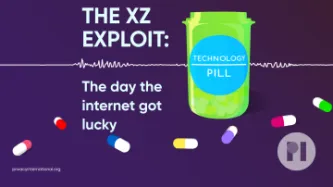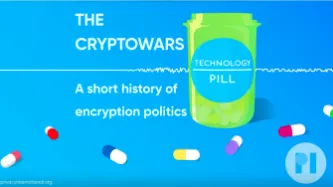Advanced Search
Content Type: External content
The register must include all algorithms that affect how workers are managed. This includes any algorithm that produces outputs which influence decisions made about how workers access and are assigned work, how their performance is assessed, how much they are paid, when they must be available for work, what employment status they have, whether they continue to be offered work, and any other matters relating to their terms of work.The public register is key to addressing the information…
Content Type: Explainer
Behind every machine is a human person who makes the cogs in that machine turn - there's the developer who builds (codes) the machine, the human evaluators who assess the basic machine's performance, even the people who build the physical parts for the machine. In the case of large language models (LLMs) powering your AI systems, this 'human person' is the invisible data labellers from all over the world who are manually annotating datasets that train the machine to recognise what is the colour…
Content Type: Explainer
IntroductionThe emergence of large language models (LLMs) in late 2022 has changed people’s understanding of, and interaction with, artificial intelligence (AI). New tools and products that use, or claim to use, AI can be found for almost every purpose – they can write you a novel, pretend to be your girlfriend, help you brush your teeth, take down criminals or predict the future. But LLMs and other similar forms of generative AI create risks – not just big theoretical existential ones – but…
Content Type: Long Read
IntroductionFor years PI has been documenting the market dominance and associated power of Big Tech over the digital economy, and the threats this poses to our privacy and wider rights.The digital economy is characterised by a handful of Big Tech companies that have established and maintained dominance over the digital market through opaque and exploitative practices. Big Tech exploits the data of those who use their platforms in ways which interfere with our privacy and wider rights. In…
Content Type: Advocacy
In an increasingly digitised world, automation, artificial intelligence and sensitive data processing present new and rapidly shifting challenges which underscore the urgent need for states to ensure that the rights of persons with disabilities are explicitly addressed and centred when it comes to the use of data and technology. Digital technologies can offer important opportunities for accessibility and the realisation of human rights of persons with disabilities, but can also present…
Content Type: Video
Links- Andres Freund's Mastodon - where he revealed the backdoor: - Read more in Ars Technica's article about it - Read more in The Verge's article - Read more in Wired's article about it - Check out this excellent and very helpful infographic- The XKCD comic we mention
Content Type: Advocacy
As part of our campaign 'The End of Privacy in Public' and our wider work monitoring developments of facial recognition technology (FRT) in the UK, we continue to to challenge the government, the police and the private sector regarding their unfettered roll out of FRT in the UK.To this end, we co-signed a letter sent on 4 June 2024, alongside UK civil society organisations campaigning against the use of facial recognition, to retailers across the UK calling on them to not use live FRT within…
Content Type: Advocacy
As part of our campaign 'The End of Privacy in Public' and our wider work monitoring developments of facial recognition technology (FRT) in the UK, we continue to to challenge the government, the police and the private sector regarding their unfettered roll out of FRT in the UK. In May 2024, we co-signed a letter with a coalition of UK based NGOs regarding a recent investigation that exposed The Metropolitan Police's (the Met) use of website PimEyes. PimEyes acts as a facial recognition ‘…
Content Type: Long Read
Social media is now undeniably a significant part of many of our lives, in the UK and around the world. We use it to connect with others and share information in public and private ways. Governments and companies have, of course, taken note and built fortunes or extended their power by exploiting the digital information we generate. But should the power to use the information we share online be unlimited, especially for governments who increasingly use that information to make material…
Content Type: Long Read
Table of contentsIntroductionWeighing the (potential) benefits with the risksPrivacy rights and the right to healthThe right to healthPrivacy, data-protection and health dataThe right to health in the digital contextWhy the drive for digitalImproved access to healthcarePatient empowerment and remote monitoringBut these same digital solutions carry magnified risks…More (and more connected) dataData leaks and breachesData sharing without informed consentProfiling and manipulationTools are not…
Content Type: People
Tara is a Legal Officer at Privacy International. She works on legal advocacy and supports PI’s litigation efforts in the areas of surveillance, the authoritarian use of technology and social and economic justice. Tara was admitted as an attorney in South Africa in March 2018, and holds a Master of Laws (LLM), Bachelor of Laws (LLB) and undergraduate degrees in law and political science. Before joining PI, Tara worked as a human rights attorney in South Africa, specialising in information…
Content Type: Advocacy
What's happening with digital ID in Kenya?In 2018, the Kenyan government tried to introduce the Huduma Namba project. Among other things, the project established the National Identity Integrated Management System (NIIMS); a centralised database purposed to consolidate all government records about an individual into a single ID system. In April 2019, PI submitted an expert affidavit challenging the NIIMS. In 2020, the High Court of Kenya acknowledged several key issues raised by PI in its…
Content Type: Advocacy
Generative AI models cannot rely on untested technology to uphold people's rightsThe development of generative AI has been dependent on secretive scraping and processing of publicly available data, including personal data. However, AI companies have to date had an unacceptably poor approach towards transparency and have sought to rely on unproven ways to fulfill people's rights, such as to access, rectify, and request deletion of their dataOur view is that the ICO should adopt a stronger…
Content Type: Advocacy
At PI we have been observing with concern the rapid expansion of technologies in educational settings, which has included a wide array of tools that allow the surveillance of students and academic staff, to the detriment of their privacy and academic freedom. We consider this upcoming report as an essential platform to examine the intricate interplay between academic freedom, freedom of expression, and surveillance conducted by both public and private entities through Education…
Content Type: Advocacy
While PI recognises the threats posed by cybercrime, PI reiterates the need both for a narrow scope for the proposed Convention, focusing solely on core cyber-dependent crimes, as well as for effective safeguards throughout the entire treaty to ensure human rights are respected and protected, especially in the areas of privacy and freedom of expression. Throughout the negotiations most of proposals by Member States and other stakeholders aimed at restricting the scope of the treaty and…
Content Type: Video
Links - Read more about PI's work on encryption- Matt Blaze and crypto.com; you can now find Matt at mattblaze.org - More about ITAR and the export of cryptography- More about France's ban on encryption ending in this 1999 article from the Register- More about the Data Encryption Standard - Find out more about the Clipper Chip or take a look at this NY Times article from 1994 (paywalled)- Matt Blaze's flaw in the Clipper Chip- NSA Data Center and NSA holding data- An…
Content Type: Advocacy
On 18 October 2023, the Inter-American Court of Human Rights (IACtHR or Court) issued a historic judgment declaring the Republic of Colombia internationally responsible for human rights violations against several members of the human rights non-profit Colectivo de Abogados y Abogadas José Alvear Restrepo (CAJAR)and their relatives. This groundbreaking decision marks the first acknowledgment within the inter-American context of a state’s international responsibility for violating the right to…
Content Type: News & Analysis
Is the AI hype fading? Consumer products with AI assistant are disappointing across the board, Tech CEOs are struggling to give examples of use cases to justify spending billions into Graphics Processing Units (GPUs) and models training. Meanwhile, data protection concerns are still a far cry from having been addressed.
Yet, the believers remain. OpenAI's presentation of ChatGPT was reminiscent of the movie Her (with Scarlett Johannsen's voice even being replicated a la the movie), Google…
Content Type: Examples
L3Harris is contracted by the U.S. Space Force to develop space surveillance information though a programme known as MOSSAIC (the Maintenance Of Space Situational Awareness Integrated Capabilities). The program is said to provide space surveillance information for military, civil and commercial users.https://www.satellitetoday.com/government-military/2024/04/19/us-space-force-awards-l3harris-contract-option-for-space-surveillance-program/Publication: ViaSatelliteWriter: Rachel Jewett
Content Type: Examples
Israel based company, High Lander, is providing demos of its system, called Orion, to U.S. police departments, suggesting the drones can help in law enforcement, including by performing video surveillance, searching for people or vehicles using AI and thermal sensors. https://theintercept.com/2024/05/17/israel-orione-drone-us-police-louisiana/Publication: The InterceptWriter: Delaney Nolan
Content Type: Long Read
Sports are a huge part of daily life for billions around the world, a fundamental aspect of the rich tapestry of the human experience.Attending a major sporting event can be a formative experience in someone’s life, as a place to share in a communal culture.Increasingly we have seen surveillance, and especially mass surveillance measures, being introduced at sports events impeding the enjoyment particularly of the right to privacy and right to participate in sporting life.When we saw that the…
Content Type: News & Analysis
On 15 May 2024, a London Administrative Court handed down its judgment in the case of ADL & Ors v Secretary of State for the Home Department, just two months after another court judgment and a ruling of the UK's data protection authority (ICO). The four Claimants in this latest case (including asylum seekers and survivors of trafficking) were challenging the UK Home Office's policy of placing people released from immigration detention under 24/7 GPS surveillance - either by shackling them…
Content Type: Long Read
IntroductionFor years PI has been exposing and advocating against the use of facial recognition technology (FRT) and the grave threats it poses to our rights. This highly invasive technology is paving the way to a dystopian, biometric surveillance state, where everyone is identified and tracked everywhere they go, in real time, as they move through public spaces during their everyday lives. Furthermore, this is taking place within a democratic vacuum, without any specific legislation pertaining…
Content Type: Advocacy
The United Nations (UN) Committee on the Convention of the Rights of Persons with Disabilities (CRPD Committee) has published a damning "Report on follow-up to the inquiry concerning the United Kingdom of Great Britain and Northern Ireland" which calls upon the United Kingdom (UK) to take action against the human rights risks posed by the use of Artificial Intelligence (AI) for automated decision-making in the social security system in order to decide who can receive benefits. Published in…
Content Type: Examples
New rules rolled out by India's app-based home services platform Urban Company require its more than 52,000 workers to maintain ratings of a minimum of 4.7 (out of 5), accept 70% of job leads, and cancel only four jobs a month. The company says the rules are intended to improve customer experience and raise standards, and may increase its requirements to 80% acceptance and three cancellations. Workers who don't meet the requirements must attend online (free) or offline (fee-bearing) training,…
Content Type: Examples
Workplace surveillance has become a reality in the US in every type of job from financial executives to radiologists to warehouse workers, tracking in detail how workers spend their time. Often, time spent on manual tasks does not register as working time, leading to lost pay or even lost jobs. Workers subjected to electronic surveillance report that they have lost autonomy and that the constant pressure of electronic micromanagement is demoralising, humiliating, and toxic. https://www.…
Content Type: Examples
A summary of Karen Levy's 2023 book Data Driven, which studies the installation of electronic logging devices in the cabs of US truckers, removing much of their traditional autonomy. Nominally installed to improve safety, the devices actually are making trucking less safe by pushing experienced drivers out of the profession and removing the flexibility that allows truckers to respond to conditions on the ground. Strategies are needed to ensure that AI does not fundamentally reallocate burdens…
Content Type: Examples
The Dutch data protection authority has fined Uber €10 million for failing to inform drivers how long it retains their data or how it secures it when sending it to countries outside the EEA, and hindering drivers' access to their data by making requests unnecessarily complicated. The fine follows a complaint filed by 170 French drivers with a human rights organization, which complained to the French data protection authority, which forwarded It to the Netherlands, where Uber has its European…





















